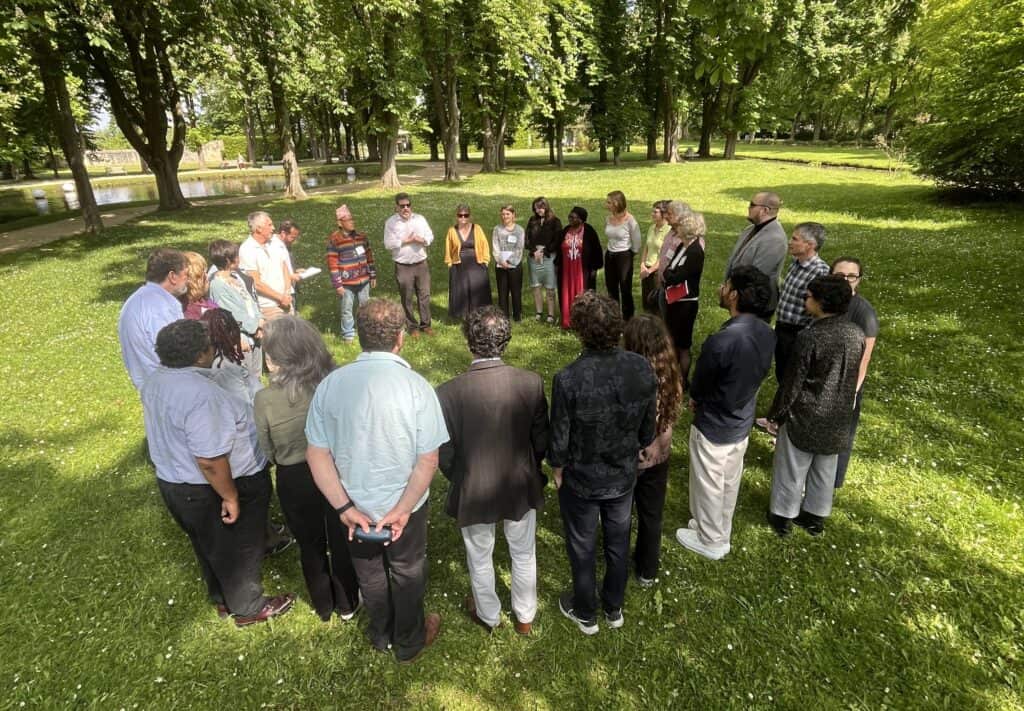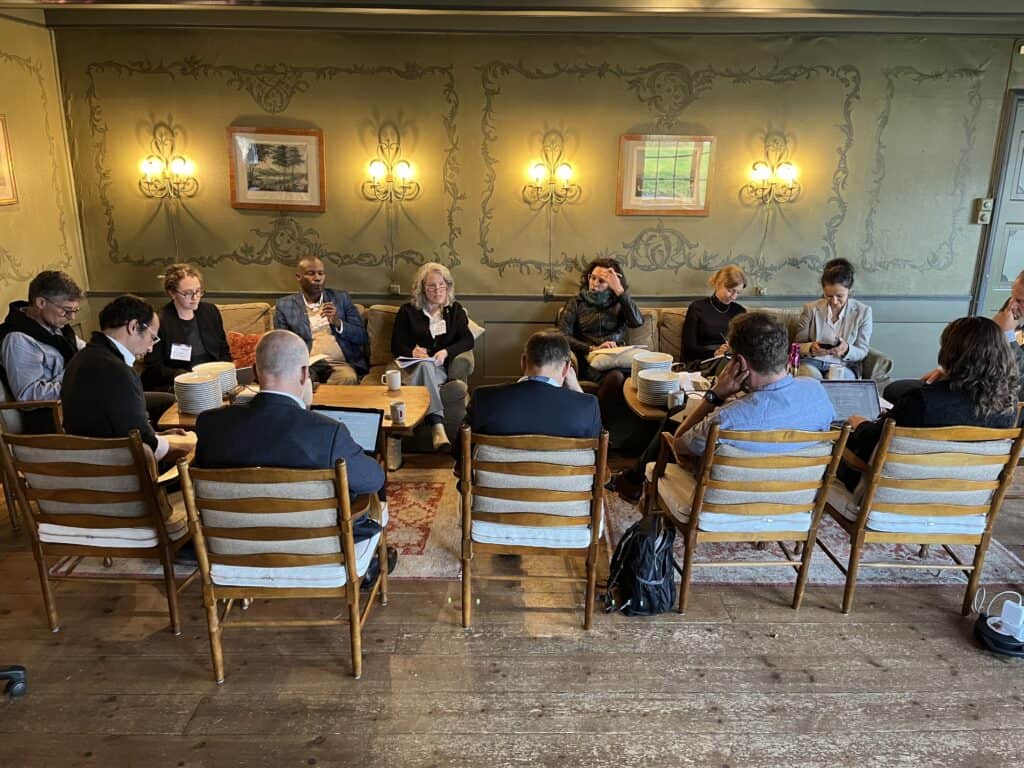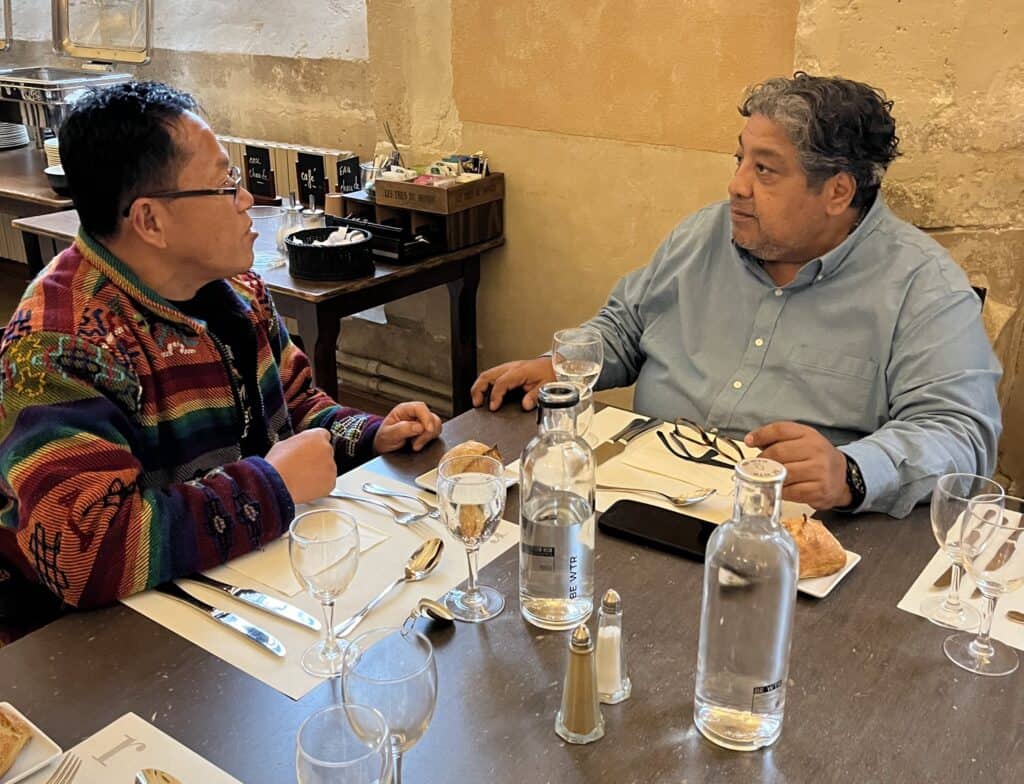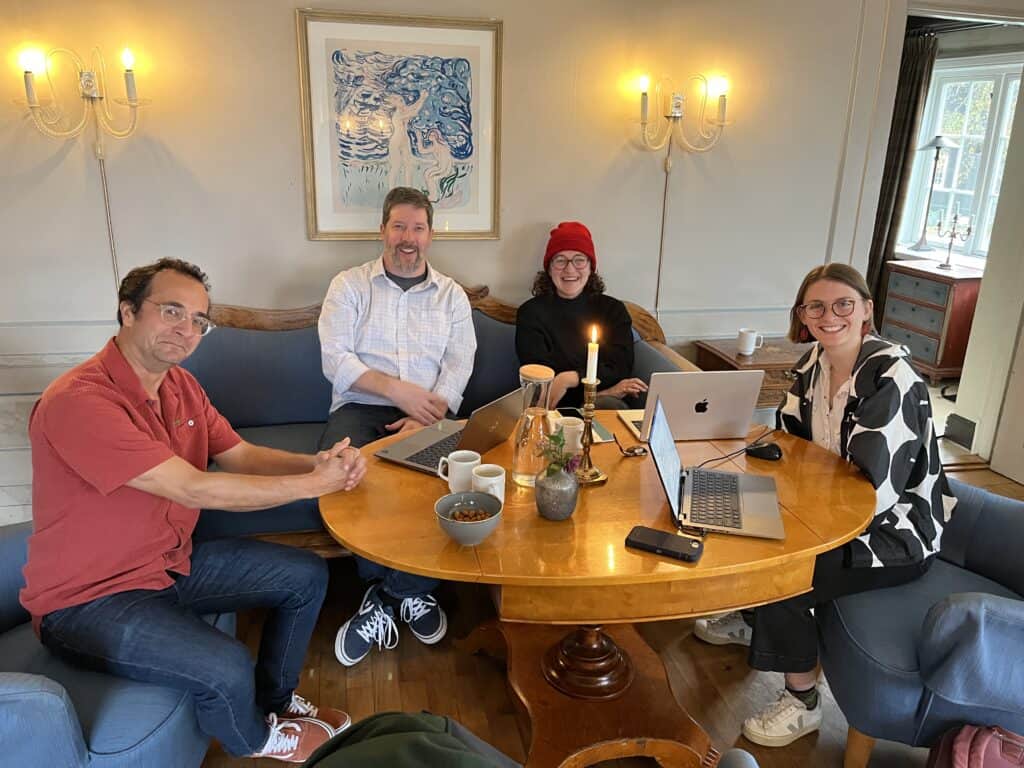Setting Up for Success: How Meridian’s Informal Convenings Contributed to High-Level Agreement at CBD COP16
15 April 2025
In 2024, Meridian’s Digital Sequence Information (DSI) team arrived in Cali, Colombia, prepared for tense, lengthy negotiations at the 16th Conference of the Parties of the UN Convention on Biological Diversity (CBD COP16).
Reflecting on both the lead-up to the COP and the formal negotiations themselves, one key element of Meridian’s strategy stood out as a key ingredient throughout the process: informal convenings.
The informal dialogues Meridian facilitated with Parties, scientific experts, industry representatives, and Indigenous Peoples and local communities proved highly valuable – informing and shaping key elements of the groundbreaking agreement reached at the conclusion of the negotiations.
Meridian’s past experience designing and facilitating informal processes that complement formal UN proceedings, such as our work on REDD+, helped to inform this work in Cali.
What is Digital Sequence Information and Why Does it Matter?
Tied to issues of global health, food security, and conservation, digital sequence information on genetic resources, or “DSI,” refers to the digital data derived from biological material that has been extracted from living organisms, such as DNA or RNA. This data is then uploaded and stored in databases, including several that are openly available to the public.
Companies now use DSI as a key ingredient for scientific innovation, research, and development across many sectors, including pharmaceuticals, biotechnology, cosmetics, and plant and animal breeding. Those innovations often lead to profitable commercial products and revenue streams for companies in these sectors.
COP16 Formal Negotiations on DSI and a Historic Agreement

The CBD has been negotiating rules for access to DSI and how to share monetary and non-monetary benefits from its use. The Meridian team attended CBD COP16 to support Parties, stakeholders, and rightsholders on the sidelines of the negotiations.
Leading up to the COP, alongside the formal CBD negotiations, bringing stakeholders together both in-person and virtually to build their DSI literacy and explore practical, workable solution pathways for DSI access and benefit-sharing.
On the ground in Cali, Meridian staff helped ease tension and pressure between key negotiators through private meetings at key moments and facilitated public presentations on key ideas. The team also conducted on-the-spot research for negotiators to clarify text options, and advised the Colombian Presidency on DSI-related process matters.
The negotiations culminated in a groundbreaking agreement – Decision 16/2 – which establishes the parameters to operationalize a multilateral mechanism (MLM) and global fund (the Cali Fund) for monetary benefit-sharing from the use of DSI.
The Cali Fund presents an unprecedented opportunity for the private sector to contribute financially to the conservation and sustainable use of biodiversity and support the goals of the CBD and Kunming-Montreal Global Biodiversity Framework.
What Do Informal Convenings Bring to the Table?

Formal negotiations in international bodies like the CBD are high-pressure affairs in which time constraints, differing levels of subject matter expertise, and formal discussion structures sometimes limit negotiators’ ability to engage openly and creatively.
Informal dialogues, however, can provide breathing room for stakeholders to vigorously examine substantive questions and build trusted personal relationships that are sometimes the special ingredient needed to help Parties reach agreement in formal negotiations.
Meridian’s informal dialogues in the run up to COP16 helped set the stage for success. The learning, mutual understanding, and relationships participants built during the informal meetings, and the ideas that came out of them, informed and shaped key elements of Decision 16/2 agreed at the COP.
“The building of personal relationships between delegates was key at COP16. Also, the advancement in the reasoning around various modalities of the multilateral mechanism helped tremendously to reach a COP decision of that ambition.”
— Secretariat Member, Convention on Biological Diversity

One meeting Meridian co-convened with the London School of Economics generated proposals that were adopted by negotiators regarding what proportion of profit or revenue commercial DSI users would be expected to contribute to the Cali Fund.
Another convening helped secure the inclusion of language in the final text that ensures metadata associated with genetic resources derived from Indigenous lands, territories, and waters is preserved in key databases around the world.
“Deep knowledge and strong expertise from the Meridian Team on the DSI issue has been instrumental to better understand what was at stake regarding this complex topic.”
— Party Representative, Convention on Biological Diversity
On such a controversial and complex issue, Meridian’s informal work on DSI created space for collaborative problem solving and trust building. This intentional process added significant value, giving Parties, stakeholders, and rightsholders opportunities to find common ground and helping enable an ambitious international agreement.